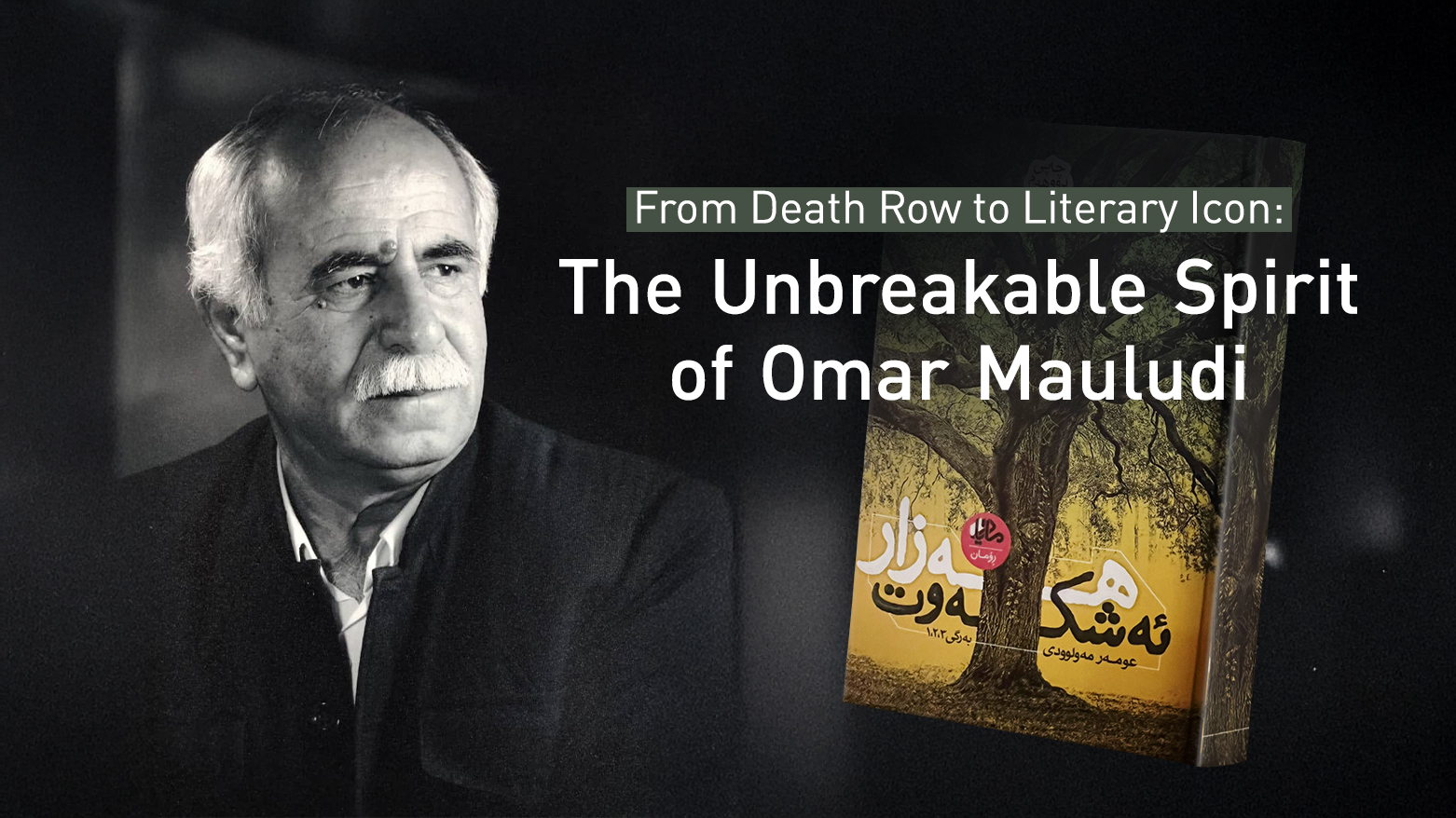From Death Row to Literary Icon: The Unbreakable Spirit of Omar Mauludi
With unshakable determination, he taught himself to read and write—one painstaking word at a time—transforming a prison sentence into the foundation of a literary legacy that would inspire generations.

ERBIL (Kurdistan24) – At the age of 30, Omar Mauludi sat in an Iranian prison cell, sentenced to death for his Kurdish political activism. He was illiterate, unable to read or write. Yet, even in the face of imminent execution, Mauludi’s spirit remained unbroken.
With unshakable determination, he taught himself to read and write—one painstaking word at a time—transforming a prison sentence into the foundation of a literary legacy that would inspire generations.
“Other prisoners in my cell wondered why I was trying to learn when I was already sentenced to death,” Mauludi told Kurdistan24. “My answer was simple: I would rather die knowing something than die as an illiterate man.”
A Self-Taught Writer in the Face of Despair
Born in Bukan city, in northwestern Iran’s Kurdish region (Rozhalat), Mauludi’s life was marked by struggle from an early age. In prison, where resources were scarce, he found an unexpected teacher: Sirwa Magazine. Using its pages as his guide, he learned to write without any formal instruction. Against all odds, he penned his first novel, Hazar Ashkawt (in English: One Thousand Caves), inside the prison walls—a sweeping tale of love and political turmoil in 1960s-70s Rozhalat.
“Whoever reads Hazar Ashkawt cries,” Mauludi said, reflecting on the emotional depth of his storytelling. His writing blends the personal with the political, bringing to life the struggles and resilience of the Kurdish people.
A Literary Journey of Resistance and Revival
Eventually, Mauludi’s death sentence was overturned, and he was released. But his fight was far from over. Fueled by a lifelong dedication to Kurdish culture and history, he continued to write, publishing the second and third volumes of Hazar Ashkawt and going on to write dozens more novels and short stories. His works, often inspired by real historical events and figures, became a bridge between the past and the present, ensuring that Kurdish stories were told and remembered.
Mauludi also dedicated himself to translating books from Persian to Kurdish, making literature more accessible to his people. He strongly believed that novels held the power to educate and preserve the Kurdish identity, reaching wider audiences and deepening cultural awareness.
A Legacy of Courage and Dedication
Now, at 75, Mauludi is more than just an author—he is a symbol of resistance, knowledge, and unwavering devotion to Kurdish history and art. His journey from an illiterate prisoner to a celebrated writer stands as a testament to the power of perseverance and the unyielding strength of the Kurdish spirit.
Despite the challenges he has faced, Omar Mauludi remains a beacon of hope, proving that even in the darkest of times, the pursuit of knowledge and cultural preservation can shine through, unbreakable and unstoppable.